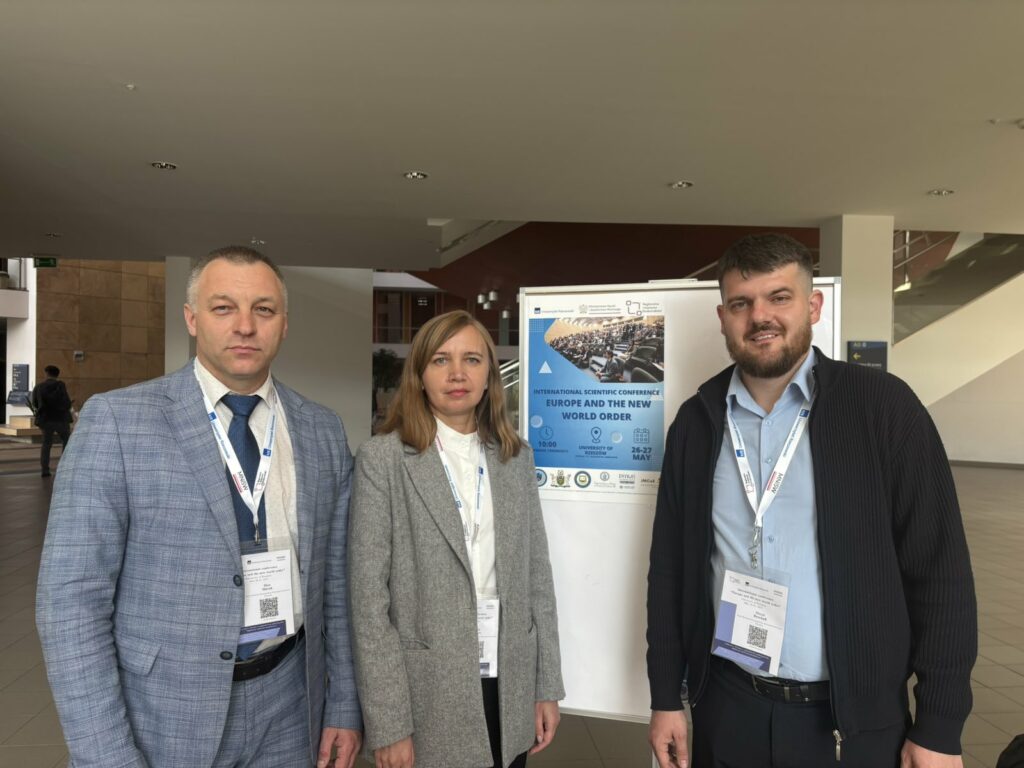On May 26–27, 2025, an international scientific conference on the topic “Europe and New World Order” was held at the University of Rzeszow (Republic of Poland). About a hundred researchers from higher education institutions and scientific institutions in Great Britain, Italy, Germany, Poland, Serbia, Slovakia, the USA, Croatia, Turkey, Hungary and Ukraine took part in the scientific forum. Vasyl Stefanyk Precarpathian National University, which acted as a co-organizer of the conference, was represented by the Dean of the Faculty of History, Political Science and International Relations Ihor Hurak, Deputy Dean for Research Yulia Kobets and Associate Professor of the Department of International Relations Orest Boychuk.
Addressing the conference participants with a welcoming speech, Ihor Hurak emphasized that in recent years, especially in the context of the ongoing war between Russia and Ukraine, serious changes have been clearly observed in the global and European security system, and the issues that are the subject of discussion by the conference participants will determine the future of the European continent for many years to come. He drew the attention of those present to the fact that such international discussion platforms have not only intellectual, but also significant political and strategic significance. They allow for discussion, reflection and – most importantly – the formation of ideas and narratives that can influence real political decisions at the national and international levels. At the end of his speech, Ihor Hurak expressed his belief that scientific events of this level play an extremely important role not only from the point of view of academic knowledge, but also as tools for influencing real political life.
Orest Boychuk presented to the conference participants the results of his research on the current state of the foreign policy guidelines of the Federal Republic of Germany, drawing attention to the challenges associated with the unpredictable policy of US President Donald Trump. During his speech, he focused on the analysis of the coalition agreement between the CSU/CDU, which states that Russia is an enemy both for the European Union in general and for Germany in particular. Summing up his report, Orest Boychuk demonstrated restrained optimism regarding the “Ukrainian” policy of the new German government, emphasizing that the next few months will demonstrate to what extent the new Chancellor F. Merz will be able to implement his declarations in practice.
Yulia Kobets, in her speech on the topic “State Migration Policy of Ukraine in Conditions of Full-Scale Invasion,” emphasized the importance of analyzing the impact of military conflicts on migration processes in the modern world. She argued that the increase in armed conflicts objectively causes mass migration due to security threats, human rights violations, and economic instability. Yulia Kobets paid special attention to the analysis of the situation in Ukraine in the context of a full-scale invasion, when state migration policy plays a critical role in protecting the rights of internally displaced persons and refugees.

